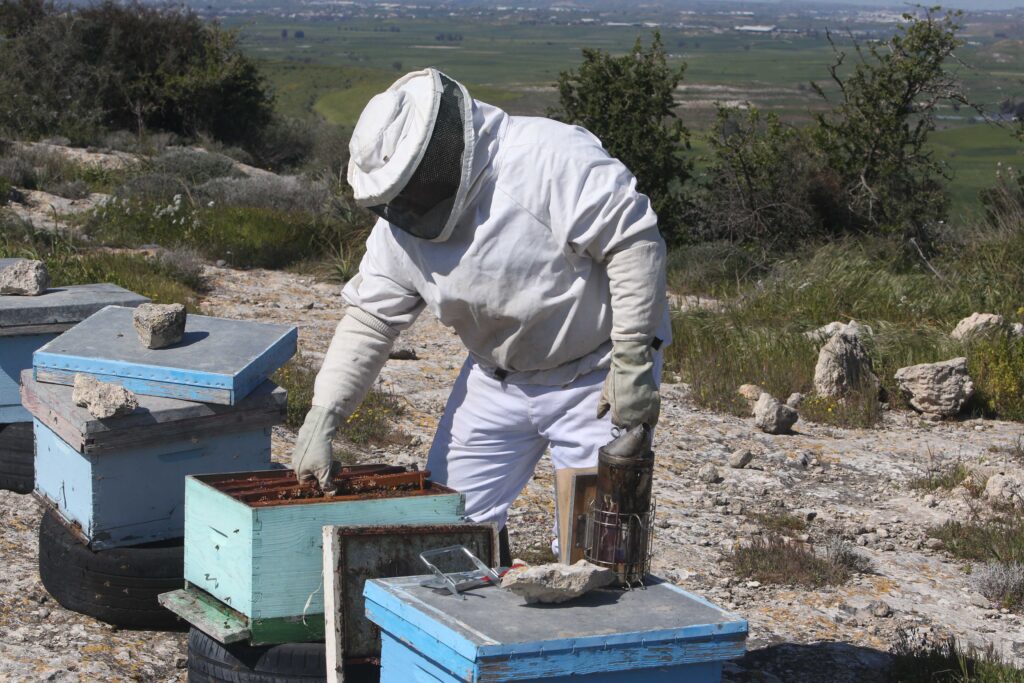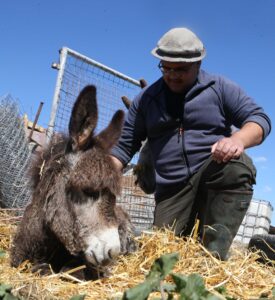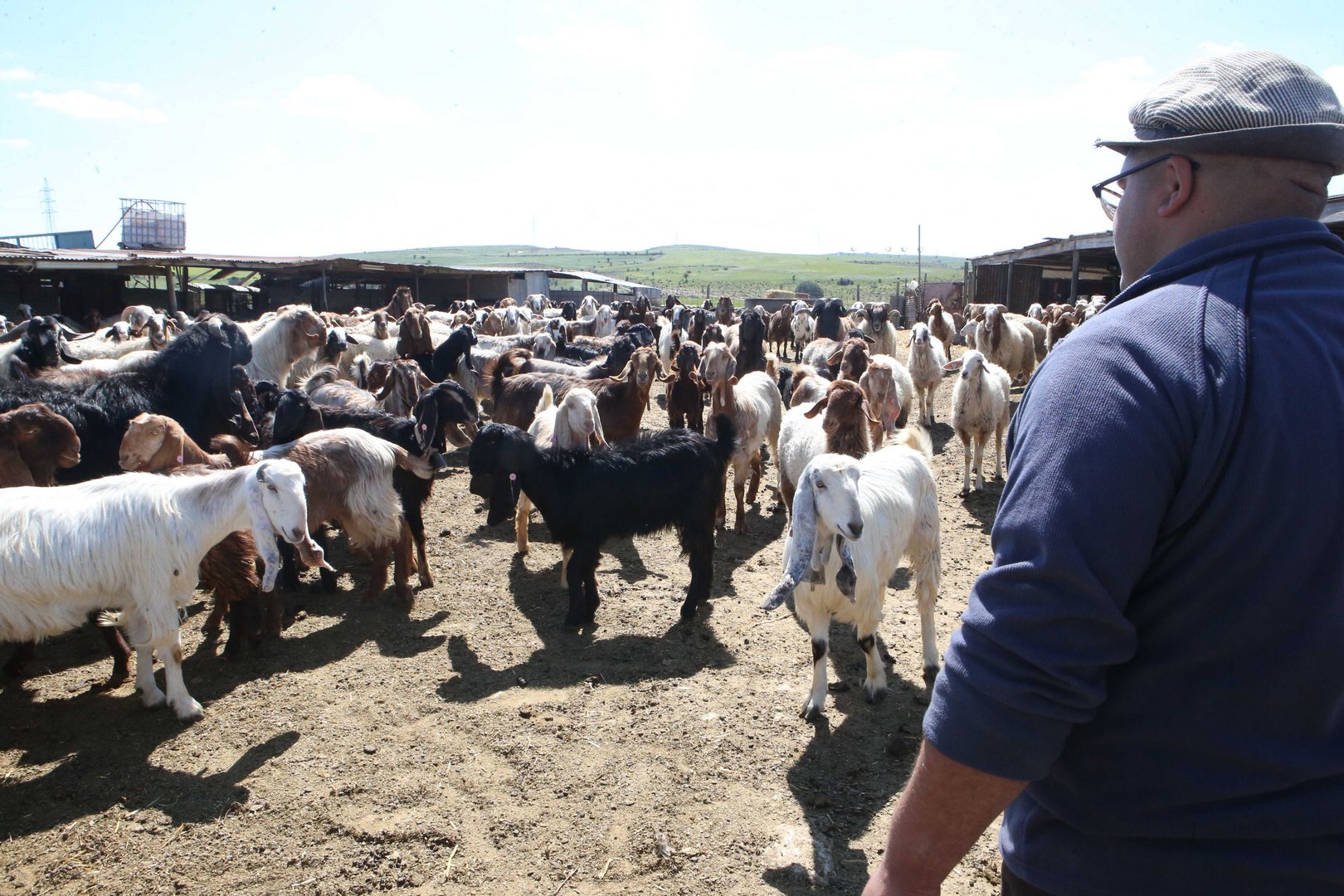A 19-year-old from Atheniou is determined to keep buck the trend and stay put on his land
By Gina Agapiou
Early wake up calls are far from over for 19-year-old Christos Karagiannis after completing his service in the national guard last year, as he helps maintain his great-grandfather’s legacy, a goat and sheep farm in Athienou.
“I am here every day; I wake up in the morning around 5.30am, I check the animals to see if anyone is ready to give birth before I move on to other tasks.”
His daily routine includes feeding his own animals that he raises to sell to pet shops or individuals. From horses and donkeys to different species of birds such as black swans, peacocks and even a single male ostrich, the young farmer has his hands full.
“I might finish at 5pm, or maybe 10pm if we have no staff that day,” Karagiannis said.
As if this wasn’t enough, the teenager is also one of the youngest beekeepers.
In 2014, when he was just 11 years old, he found an abandoned wooden beehive in the fields. “I took it, a family friend helped me maintain it and a priest gave me my first beehive.”
He learned the secrets of apiculture by visiting the beehives of another family friend and watching him on the job. Then he gradually increased his beehives and has been a professional beekeeper for the last four years, producing the Houzam honey, as well as wax ointment.

Christos has been producing his own honey for the last four years (Christos Theodorides)
However, things might have never been more difficult for farmers in the island, so it is important to love the profession, the animal breeder said.
“If you see it as a business and see everything as absolute, you will kill yourself. You must have love for the animals because there are external factors beyond your control that affect you,” he says.
“It must fulfil you because if it doesn’t you will not be able to cope with the amount of hours required. But if it is what you love it comes naturally.”
On top of the usual problems plaguing farmers and animal breeders like diseases, the war in Ukraine has led to a surge in grain prices, animal feed and fuel.
“The situation is devastating. Animal feed went 60 per cent up, oil 30 per cent while our prices are stable or going down,” he said, explaining his family is selling milk to producers.
There has also been a shortage of staff, since “Cypriots will not come to work in a farm”, Karagianis said, and they were dependent on foreign workers who also started avoiding this profession seeking other alternatives.
Karagiannis was literally born into the profession.
“As I soon as we left the clinic when I was born, my parents passed me by the farm before going home to ‘get the smell’,” he says.
Then, as a toddler, his dad, Pantelis, would pick him up on his shoulders and together they went to the fields when the animals were out feeding.

At the age of five, the only boy of the family learned how to play pithkiavli, a native Cypriot flute and was playing for the animals before he attended the music high school Ayios Georgios. There, he was introduced to other traditional musical instruments like lavta and other string music instruments.
“This is how I grew up; the love for the animals, to take care of nature and respect it.”
And he wouldn’t have it any other way.
“Everyone has their major…I never wanted to go and study and waste more time. I wanted to work and be involved in nature, I started planting vineyards and carob trees when I was 17.”
Being in nature is a way for the teenager to feel free, while tending to his animals he says gives him “the patience to understand the human race”.
“When I go out in nature and see the animals walking around eating, hear the sound of birds chirping, I feel like a king. Whereas when I am around people all the time, driving in the city for example, I feel like a subject. I want to be free,” he says.
Tradition was also a major part of the young man’s upbringing who learned that just like trees, “if you cut your roots, you are done,” and remembers how he was singing tsiatista in kindergarten. “Our dialect is beautiful for someone who knows how to use it.”
“We are not trees but we have roots, we might not dry out but we will lose our identity,” he said.
Karagiannis is planning to open his own farm one day, which is why he will apply for EU funding targeting young farmers in the coming months. He plans to build this modern farm for sheep and goats in the place his great-grandfather built his first barn with rocks in Athienou.
But to make do for now, Karagiannis also sings at traditional music events and social gatherings such as weddings.
Another dream he has to modernise the village, is to open an agro-tourism park where visitors will be able to see different types of animals, ride donkeys, gathers eggs from chickens, learn how halloumi is made and watch the milking of animals.
“I have many plans, but they require patience,” he said.







Click here to change your cookie preferences